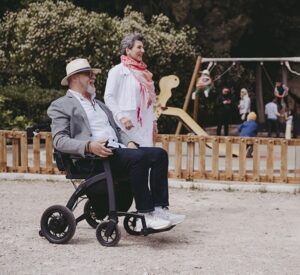
Retirement brings the freedom to enjoy life at a different pace, but financial security remains a top concern. Without a steady paycheck, seniors must find ways to cover daily expenses, healthcare costs, and leisure activities without worrying about running out of funds. The goal is to maintain independence while making smart financial choices that keep savings intact for years to come.
Good financial habits don’t stop after retirement. Managing money wisely helps retirees avoid financial stress and continue enjoying their chosen lifestyle. Whether it's budgeting, finding additional income sources, or making smart investments, keeping control over finances allows seniors to stay self-sufficient. Retirement should be about relaxing and enjoying life, not worrying about money. With the right strategies, financial independence is possible for the long haul.
Let’s see how:
Strategic Financial Planning for Long-Term Stability
Retirement savings need to last for decades, which makes it important to have a plan that accounts for both expected and unexpected expenses. A well-structured plan allows retirees to manage their assets, control spending, and make adjustments based on life changes. Reviewing savings, pensions, and investments regularly helps ensure that finances remain stable throughout retirement.
A good strategy for planning for retirement often includes budgeting for everyday expenses, setting aside money for emergencies, and keeping investments diversified to generate steady income. Many retirees benefit from working with financial advisors to create plans that align with their lifestyle goals. Making thoughtful adjustments along the way helps protect savings while allowing retirees to maintain their desired standard of living.
Budgeting to Maximize Retirement Income
Living on a fixed income requires a different approach to budgeting. Unlike during working years, retirees rely on a mix of savings, Social Security, and pension payments instead of a steady paycheck. Tracking expenses and identifying unnecessary spending allows retirees to stretch their funds further. Small changes, whether cutting back on impulse purchases or switching to cost-effective service providers, can free up more money for important needs.
Reducing expenses doesn’t mean giving up on enjoyment. Many seniors take advantage of senior discounts, travel deals, and community programs that offer services at reduced rates. Downsizing to a smaller home or moving to an area with a lower cost of living can also help manage expenses without sacrificing quality of life. A well-planned budget provides financial stability while allowing retirees to enjoy their retirement years comfortably.
Creating Passive Income Streams
Relying solely on savings can be stressful, especially when the cost of living rises. Passive income provides an additional layer of financial security, helping retirees maintain independence without the need for full-time work. Rental properties, dividends from investments, and annuities are common ways to generate passive income that supports daily expenses. Even small sources of income can make a significant difference in long-term financial security.
For retirees interested in exploring flexible income opportunities, online learning can be a valuable tool. If you’re considering a new career or side business that supports ongoing financial security, you can discover real estate training online through the New York Real Estate Institute, which offers self-paced classes designed for adults at any stage of life. By acquiring real estate credentials remotely, seniors may open new income streams with minimal upfront time commitment.
Some retirees explore part-time work or start small businesses based on their skills or hobbies. Consulting, tutoring, or selling handmade goods online are great ways to earn extra money without taking on demanding work schedules. These options offer financial benefits while keeping retirees engaged and active. Finding ways to generate income without overextending energy levels provides financial flexibility while allowing retirees to enjoy their well-earned free time.
Smart Investment Strategies for Retirees
Investing doesn’t stop after retirement. In fact, maintaining a strong investment strategy is one of the best ways to keep financial stability. While retirees may not want to take the same risks they did in their working years, smart investment choices can keep savings growing without unnecessary exposure to financial losses. A mix of low-risk investments, such as bonds, dividend-paying stocks, and conservative mutual funds, helps provide steady income while protecting capital.
Diversification plays a key role in securing retirement funds. Putting all money into one type of investment creates risk while spreading assets across different accounts helps balance returns. Some retirees work with financial advisors to create investment portfolios that align with their retirement goals. Others choose annuities or real estate investments to supplement their income. The goal is to keep savings working while reducing exposure to market volatility.
Housing Options That Support Financial Stability
Housing is one of the biggest expenses in retirement, and making smart decisions about where and how to live can significantly impact financial independence. Some retirees choose to downsize to a smaller home, which reduces maintenance costs, property taxes, and utility bills. Others opt for senior living communities that offer amenities and healthcare services, providing convenience without unexpected expenses.
For those who prefer to stay in their current homes, a reverse mortgage can provide a way to tap into the equity of the home and generate extra income, all while maintaining the comfort and independence of homeownership. Another option is relocating to a more affordable area with a lower cost of living. Carefully considering housing choices allows retirees to align their living situation with their financial goals.
Managing Healthcare Costs
Healthcare expenses can be one of the biggest financial challenges in retirement. Unexpected medical costs, prescription medications, and long-term care can quickly reduce savings if not planned for properly.
Preparing for these expenses is essential to maintaining financial independence while ensuring access to quality healthcare. Many retirees review their healthcare coverage each year to determine if they need to switch plans or add supplemental insurance to cover additional costs.
Taking advantage of preventative care and wellness programs helps lower long-term medical expenses. Many insurance providers offer free annual check-ups, health screenings, and incentives for maintaining an active lifestyle. Comparing medication prices, using discount programs, and exploring government assistance options also help cut costs.
Staying Financially Independent
Financial independence in retirement isn’t about having enough money but about managing it wisely over time. Unexpected expenses, inflation, and changes in living situations can affect financial stability. Keeping a long-term mindset helps retirees stay prepared for whatever comes next. Regularly reviewing financial plans, adjusting spending habits, and considering new income opportunities allow retirees to maintain control over their finances.
Avoiding unnecessary debt is another way to stay financially secure. Credit cards can create financial strain if not managed carefully. Many retirees focus on living within their means, using credit only when necessary, and paying off balances quickly. Financial independence comes from making thoughtful financial decisions that support a stable and enjoyable retirement.
Retirement should be a time of financial security, not stress. Seniors who take an active role in managing their money, budgeting wisely, and creating passive income streams can maintain their independence without worrying about financial uncertainty. Smart investment choices, careful healthcare planning, and ongoing financial reviews help keep savings intact for years to come. Taking control of financial decisions today leads to greater peace of mind in the years ahead.








